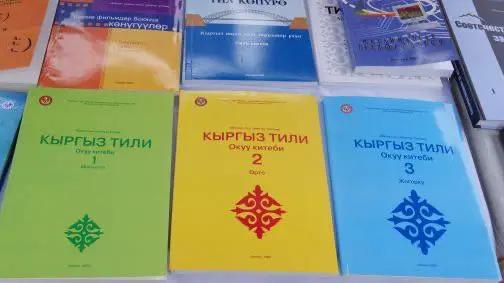
Published
06/17/2025, 14:06Kyrgyzstan is confidently stepping into a digital future: smartphones are replacing cash, and QR codes are replacing change. Behind the rapid growth of cashless transactions is a well-thought-out strategy by the National Bank aimed at ensuring transparency and accessibility of the financial system.
The main driver of this digital revolution was the decision by the National Bank of the Kyrgyz Republic, which came into effect on November 25, 2024: to abolish fees for transfers in KGS between individuals within the country — both between accounts of the same bank and between different banks. This rule applies to all transactions made through internet and mobile applications.
Previously, banks charged a fee of 5 to 20 KGS per thousand, and up to 100 KGS for larger amounts. Now, there is no need to pay anything extra. Practice has shown that this fee often discouraged people from switching to cashless payments, especially for small transfers.
With the removal of fees, everything changed. Kyrgyz citizens began withdrawing cash from their cards less frequently. In the first three months of 2025, 177.5 billion KGS were withdrawn — almost 30% (or 71.7 billion KGS) less than during the same period last year. The number of cash withdrawal transactions dropped by 26.3%, totaling 16 million operations.
According to statistics, QR codes have become one of the most popular methods of cashless payment. As of May 1, according to the regulator, 87 million payments totaling 146.1 billion KGS were made using QR codes. Compared to the same period in 2024, this represents a 13.5-fold increase in the number of transactions and a 22.8-fold increase in the total amount.
Particularly impressive is the growth of cashless payments to the government — 13.7 million transactions totaling 4.1 billion KGS. This is 371 times more in terms of quantity and 36.7 times more in value compared to a year earlier. In other words, not only shops and cafes have switched to cashless payments — government services have also become more accessible and transparent.
This growth became possible thanks to the systematic efforts of the National Bank to implement QR codes. Today, almost all commercial banks (except for EcoIslamicBank) and 12 payment organizations offer QR-based transfer and payment services. As of May 1, 71.6 thousand QR codes have been installed in trade and service enterprises across the country — nearly 4 thousand of them appeared just in the last month. And it’s not just the capital — active installation is also taking place in the regions. For comparison, there are only 2,560 ATMs and 44,317 POS terminals installed nationwide.
Thus, QR is the most widespread method of cashless payment in Kyrgyzstan.
Moreover, previously, to pay for a purchase via QR code, one had to hope that the bank was "compatible" with the store’s system — otherwise, errors or fees could occur. Now, such problems no longer exist; QR payments are processed smoothly between any banks without interruptions.
In the first three months of the year, Kyrgyzstanis have already made 24 million such payments — four times more than during the same period last year. The total amount of transfers increased to 21.6 billion KGS. The number of transfers between clients of different banks rose sharply — from 916 thousand to 45.6 million transactions. This is an increase of almost 49 times, an absolute record. Even transfers within the same bank via QR grew from 4 million to 15 million — nearly fourfold.
Interestingly, the removal of fees turned out to be beneficial for everyone. First and foremost — for citizens, who no longer have to pay for online transfers. Businesses also gained, as the introduction of QR codes allowed them to expand their customer base and simplify payment acceptance. Even banks came out ahead — despite the elimination of fees for transfers between individuals, they increased their profits. In the first quarter of 2025, banks earned over 5 billion KGS from other types of fees — nearly a billion more than last year.
And finally, the state also benefits. It gains access to a vast number of transparent transactions. Every digital payment is a recorded operation that can be analyzed and included in official reporting. This means that more and more money is coming out of the shadows and becoming part of the formal economy.



